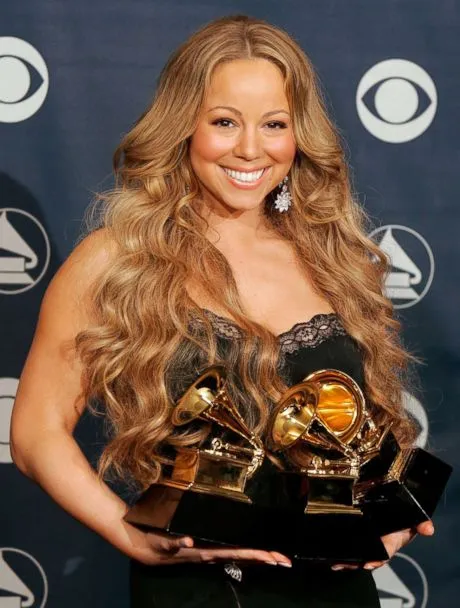Mariah Carey and the Grammy Conspiracy: A Tale of Snubbed Greatness

Mariah Carey, the Songbird Supreme, is one of the most accomplished and celebrated artists of all time. With 19 No. 1 hits (the most for any solo artist) and over 200 million records sold globally, her name is synonymous with vocal excellence, iconic melodies, and longevity in a ruthless industry. Yet, despite her unparalleled success, Carey’s relationship with the Recording Academy is a saga of bewildering neglect, leaving fans—and even Carey herself—questioning: What’s really going on?
In a candid and revealing conversation on the Las Culturistas podcast, Carey didn’t hold back, calling out the Grammys for what she believes is systemic bias, manipulation, or perhaps something more sinister. Her words, “They scammed me. They toy with me,” have reignited discussions about how the institution’s alleged favoritism and opaque processes may have robbed one of music’s brightest stars of her rightful accolades.
The Missing Gold: Mariah’s Grammy Snobs

Mariah burst onto the music scene in 1990, taking the world by storm. Her debut album earned her five Grammy nominations and two wins, including Best New Artist and Best Female Pop Vocal Performance for the groundbreaking single “Vision of Love.” It seemed like the start of a long and fruitful partnership between Carey and the Grammys. But as her career soared, her Grammy success mysteriously plateaued.
Throughout the ’90s, Carey dominated charts with hits like Fantasy, Always Be My Baby, and Hero. Yet, despite her cultural dominance, the Recording Academy repeatedly overlooked her. In 1996, her Daydream album received six nominations but won none—a shocking outcome considering its record-breaking sales and critical acclaim. The Grammy cold shoulder continued with Butterfly in 1997, an album Carey herself regards as her magnum opus. Despite its deep emotional resonance and groundbreaking production, it received a paltry three nominations and zero wins.
Perhaps most galling was the snub of The Emancipation of Mimi in 2006. A triumphant comeback, the album redefined Mariah’s career and cemented her legacy as a timeless artist. Despite eight nominations, Carey walked away with only three awards, losing the coveted Record and Album of the Year to Green Day and U2, respectively. Fans and critics alike questioned how such a monumental work could be dismissed. Was it incompetence—or something more calculated?
Theories, Whispers, and the Grammy Politics
Carey’s grievances about the Grammys tap into a deeper, murkier issue: how the Recording Academy operates behind closed doors. Over the years, allegations of favoritism, lobbying, and even corruption have dogged the institution. For an artist as successful as Mariah to remain so underrepresented suggests that external factors, not just merit, may be at play.
Some speculate that Carey’s infamous feud with former Sony Music CEO Tommy Mottola—her ex-husband and longtime industry powerhouse—may have cast a shadow over her career. Mottola’s influence in the industry during the 1990s was immense, and their acrimonious split could have led to behind-the-scenes retaliation. Others point to the Recording Academy’s historical neglect of women and artists of color, with many noting how Beyoncé, Whitney Houston, and others have faced similar snubs.
Even more intriguing is the suggestion that Mariah Carey’s candor and unwillingness to play the “politics game” may have alienated her from the Grammy elite. Carey’s refusal to adhere to industry expectations—whether through her bold creative choices or her insistence on full creative control—might have made her a less convenient figure for the Academy to celebrate.
The Legacy That Transcends Trophies
While the Grammys remain one of music’s most prestigious institutions, Carey’s story underscores how flawed and subjective such accolades can be. Her achievements, after all, speak for themselves. She has inspired generations of artists, redefined holiday music with All I Want for Christmas Is You, and created a discography that will stand the test of time.

Still, Carey’s treatment by the Grammys raises important questions about the validity of award systems in recognizing true artistry. Is it possible that an artist can be too iconic, too revolutionary, or too uncompromising to fit neatly into an institution’s mold? If so, Mariah Carey is undoubtedly guilty.
As Bowen Yang aptly put it, “Stop playing in this woman’s face!” The world already knows Mariah’s worth—and perhaps that’s all the vindication she needs.





